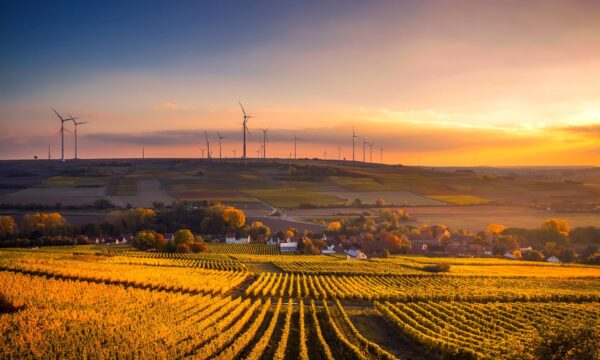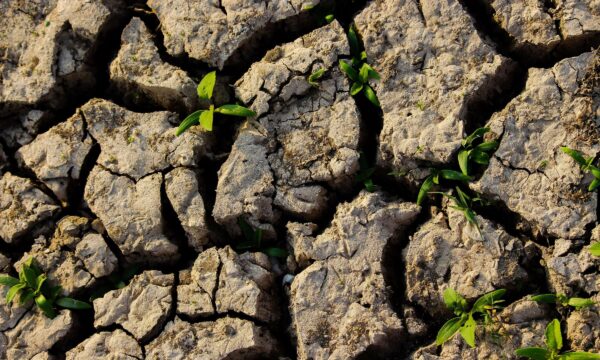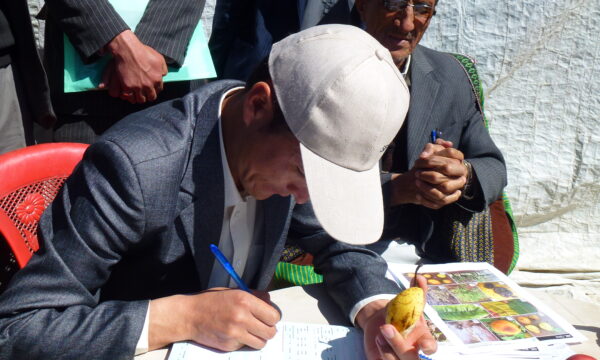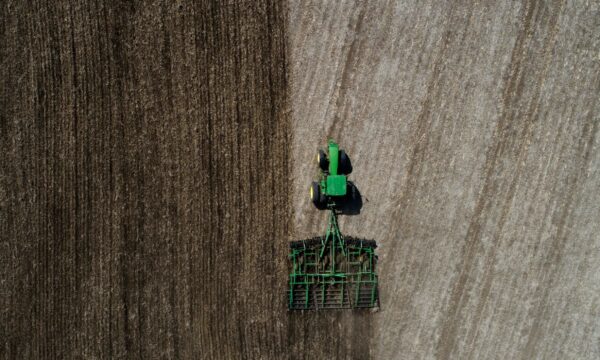Contributed by Fiona Bunn
A recent study from the University of Gothenburg has shown that plants that are grown in air with a higher percentage of carbon dioxide (CO2) have reduced levels of nitrogen in their tissue, causing increased nitrogen deficiency and reduced growth. The study was conducted across four continents in large scale projects, and the plants showed the negative effects in all three major types of ecosystem: crops, grasslands and forests. The effects were even shown when fertiliser was applied, proving that CO2 restricts the plants’ ability to absorb the necessary nutrients, not the levels in the soil.
This study is significant because it shows how climate change can impact on crop production, and perhaps contrasts with beliefs that increased levels of CO2 would increase crop production due to demand for photosynthesis. In these cases, fertilisers can become less useful in combatting the deficiency diseases, as they do not solve the main source of the problem- the plant’s inability to absorb minerals.

Nitrogen deficiency in maize (Zea mays Linn.) after regular heavy rains (Photo by – Dr Prakash Kumar).
Plants that are nitrogen deficient cannot make the necessary amino acids for protein synthesis, leading to stunted growth, yellowing older leaves (as they cannot make chlorophyll), general wilting and decreased protein content. This last effect could have consequences on malnutrition; staple foods such as rice, quinoa, nuts and pulses are highly valued for their supply of protein, particularly in developing countries based on agriculture.
Climate change can also impact on crop production in other ways, mainly as the changing climate affects the length and quality of the growing season, and makes extreme weather events more frequent, causing damage to farmer’s crops. Water shortages due to rising global temperatures also reduce crop harvests, and one study has estimated that across Africa, yields from rain-fed agriculture could decline by as much as 50% by 2020.
See article for more consequences of climate change on crop production…
http://www.theguardian.com/environment/2012/sep/19/climate-change-affect-food-production
To put a numeric value on the impact of climate change on global production is difficult as many different factors contribute to crop growth, but one recent Stanford University study found that increases in global production of maize and wheat since 1980 would have been about 5% higher were it not for climate change.
Low latitude areas such as Sub-Saharan Africa are likely to be the hardest hit, especially according to results from the latest IPCC report, making CABI’s work in these countries all the more important.
What can we do?
Limit carbon emissions! In the last 50 years emissions from agriculture, forestry and fisheries has doubled, and now agriculture contributes to 15% of global emissions, on a par with transport (read more here: http://www.fao.org/news/story/en/item/216137/icode/) When land conversion and the wider food system are taken into account the total contribution of food may be as high as 30%. This means that to limit the long-run impacts of climate change, food production must become not only more resilient to climate but also more sustainable and low-carbon itself.
Everyone can take personal action to reduce their carbon footprint through reducing their energy use and dependence on non-renewable sources, promoting a shift to renewable sources that cause far fewer emissions. This adjustment can also be made by industries and implemented by governments as they realise the costs of climate change on global crop production.
Sources:
Original study: Feng, Z., Rütting, T., Pleijel, H., Wallin, G., Reich, P. B., Kammann, C. I., Newton, P. C.D., Kobayashi, K., Luo, Y. and Uddling, J. (2015), Constraints to nitrogen acquisition of terrestrial plants under elevated CO2. Global Change Biology. doi: 10.1111/gcb.12938
Related News & Blogs
Horizon scanning for climate-driven pest threats can prevent biodiversity loss
On International Day for Biological Diversity, CABI’s Dr MaryLucy Oronje looks at horizon scanning and pest preparedness – approaches that help prevent the spread of invasive species, a major threat to biodiversity. Horizon scanning for invasive pests…
22 May 2025





